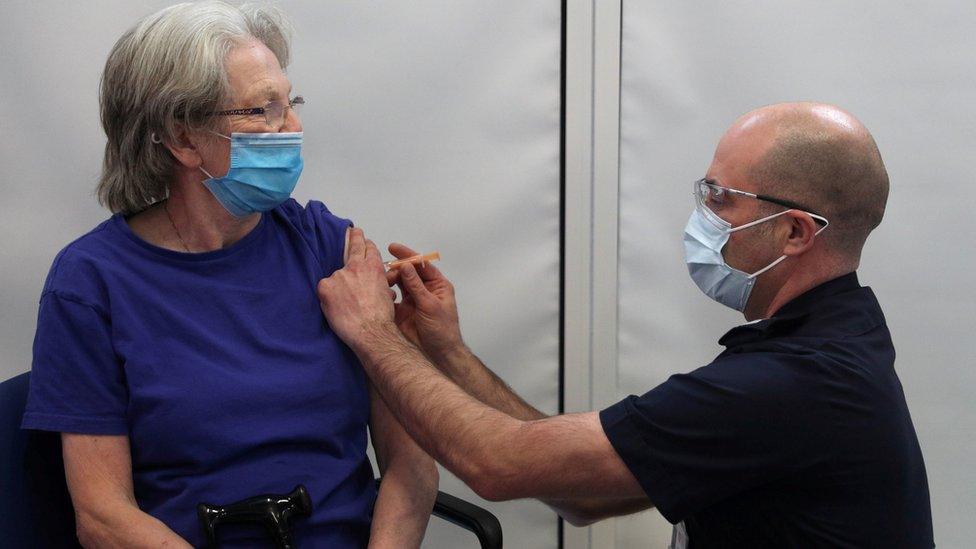Covid: How many people have been vaccinated in Wales?
- Published
- comments
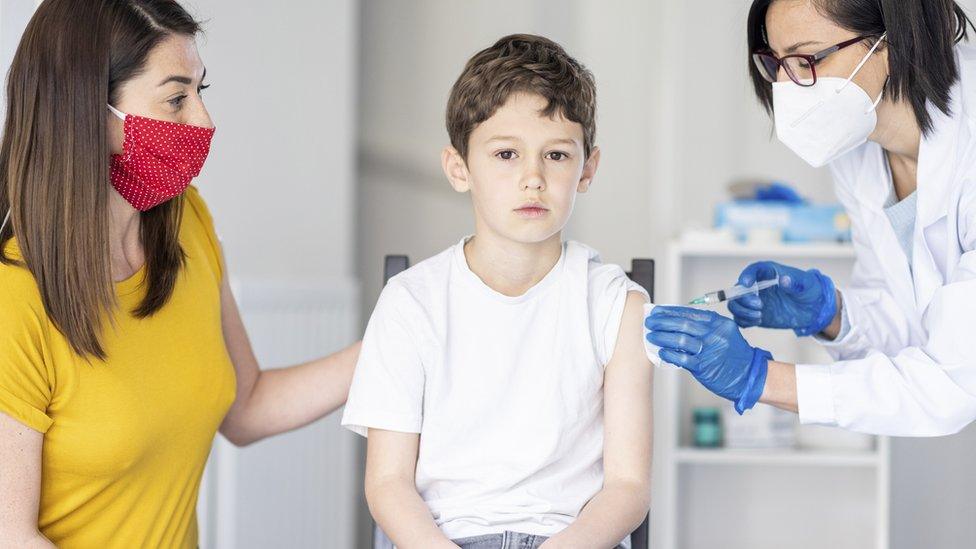
Wales became the first UK nation to offer Covid vaccinations to all five to 11-year-olds
Around 85% of the over-75s have taken up Spring booster shots of the Covid-19 vaccine, latest Public Health Wales figures show.
More than 251,000 people took up the offer by 29 June, as well as nearly 84% of elderly care home residents.
The end of June was the target cut-off date to give enough of a gap before the likely autumn 2022 boosters.
Meanwhile, 44,768 children aged five to 11 have been given first doses of Covid vaccines.
Wales was the first UK nation to offer children this age the jab and 17.7% of this age group had a dose by 29 June.
Cardiff, Vale of Glamorgan, the south Wales valleys and Bridgend have seen the biggest uptake, while the lowest is in Neath Port Talbot and Swansea.


Vaccines have been offered to five to 11-year-olds since 15 March and most children will be offered two doses of the vaccine, 12 weeks apart.
The health minister had asked parents to "begin a conversation" about whether they wanted to take up the offer and to read public health advice, external.
Monmouthshire and Cardiff had reached the most by 29 June - more than 29% of the age group - and more than 25% had received it in Caerphilly and Vale of Glamorgan.
But uptake for this age group has remained fairly low - although at around 18% in Wales, it's higher than in England where the uptake is around 10%.
At the same time, spring boosters have been offered to the most vulnerable, including the oldest care home residents, with invitations being made by GPs and health boards.
Another 8,314 spring booster jabs have been given in the past week.


Around 44% of the 18,689 vaccines distributed in the past week were spring boosters, 16% were other boosters and 24% were first doses.
Nearly 84% of older care home residents have now received a spring booster and more than 84% of over-75s.
At the height of the booster effort - 21 December - 50,524 doses were given out in one day.
Altogether, more than 7.3 million vaccine doses have been given since December 2020.
Plans for the future include the proposal that third Covid boosters are given out at the same time as flu jabs next autumn.
People can receive a booster three months after their second vaccine, so it means around 85% of those eligible for a booster vaccine have now been reached in Wales.
On 6 July, that figure stood at 86% in Scotland, 80% in England and 87% in Northern Ireland.
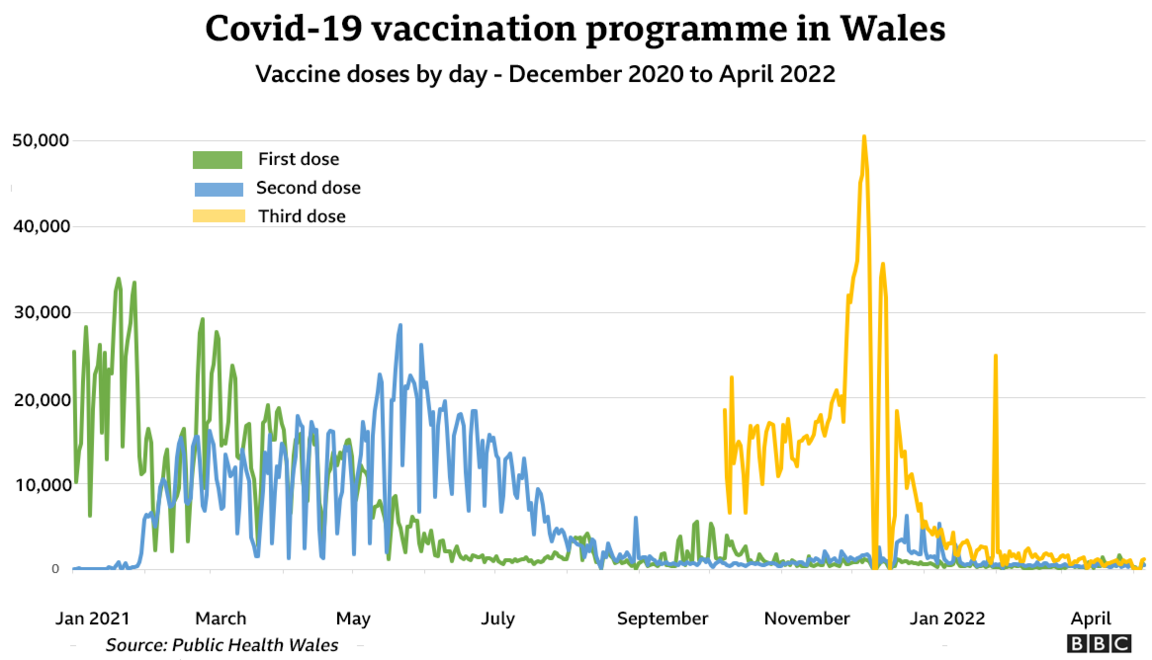

There have been an average of 432 boosters given out a day in the most recent week, although figures are now only published weekly in Wales.
The situation has been complicated by those who catch Covid having to wait before they could receive a booster.
The total is 2,052,349 boosters and third doses given out as of 30 June.
These include 50.3% of 18 to 29-year-olds and 56.5% of those in their 30s.


Booster jabs for over-18s and over-50s
By 29 June, 73.4% of adults had received their booster jab.
Monmouthshire (83%) had reached the biggest proportion and Cardiff (65.9%) the smallest.
Looking at the over-50s, nine counties had reached more than 90%, with Monmouthshire (91.7%) leading the way. Cardiff (84.9%) had reached the fewest, but it still represents a large proportion.
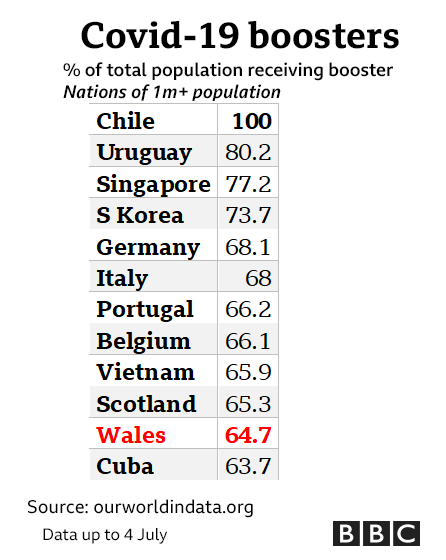

Wales ranks 11th in world for booster progress
For the proportion of its population with booster doses, Wales is ranked 11th in the world, compared with other nations with a population above one million.
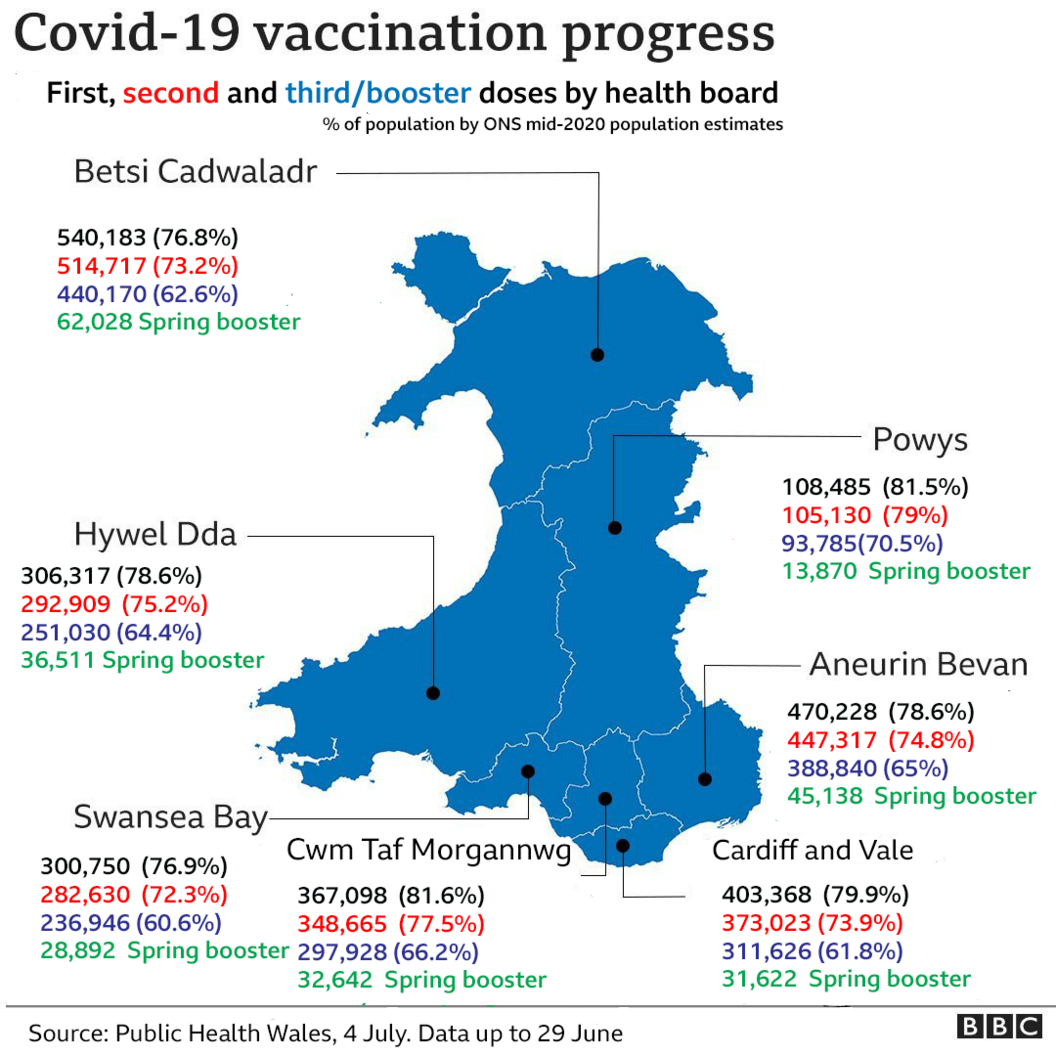

When we look at figures within Wales, we can see Powys reached 79% of its total population with two doses and more than 70% with boosters.
Swansea Bay has reached the smallest proportion for all three doses of the vaccine (60.6%).
Cwm Taf Morgannwg has now caught up with Powys for the highest proportion of first doses per head.


What about 12 to 15-year-olds?
A total of 61.6% of the 12 to 15 age group offered vaccines had taken a first dose in Wales by last Thursday, and nearly half had received second doses.
But there is a big variation between counties. Up to 29 June, this ranged from 75.7% uptake in Monmouthshire and more than two-thirds in Bridgend, Blaenau Gwent, Merthyr Tydfil, Powys, Rhondda Cynon Taf (RCT) and Vale of Glamorgan, to 49.9% of 12 to 15-year-olds in Neath Port Talbot.
Nine counties have seen more than half of the age group take up second doses, rising to 65.3% in Monmouthshire.
Inequality gaps remain wide
There remains "significant inequality gaps" in the proportion of people taking up Covid booster vaccines in more deprived areas of Wales, and between sexes and ethnic groups, according to recent public health analysis.
Just under 38% of 18 to 29-year-olds living in the most deprived parts of Wales have taken up a booster so far, compared with more than half (55%) living in the least deprived parts of the country.
The inequality gap was widest in 16 and 17-year-olds for the first two doses (21.8%) between the most and least deprived areas by 10 March.


Figures up to March showed gaps in uptake for those in younger age groups were wider and in all age groups had not narrowed, compared to previous reports.
The Public Health Wales analysis also looks at booster uptake gaps among people from ethnic minorities, showing 37% of 18 to 29 year-olds from the black, Asian and mixed ethnic population had a booster, compared with 51% among the white population.
The gap continued with older groups, with 73% of black, Asian and mixed ethnic people in their 50s having a booster, compared to 84% among white people of the same age.
Related topics
- Published16 February 2022

- Published24 February 2022
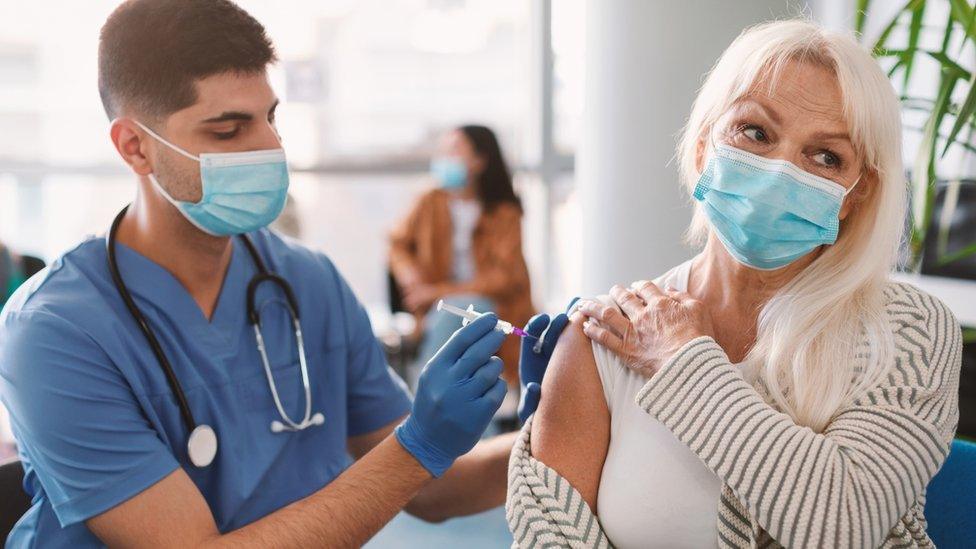
- Published30 September 2021
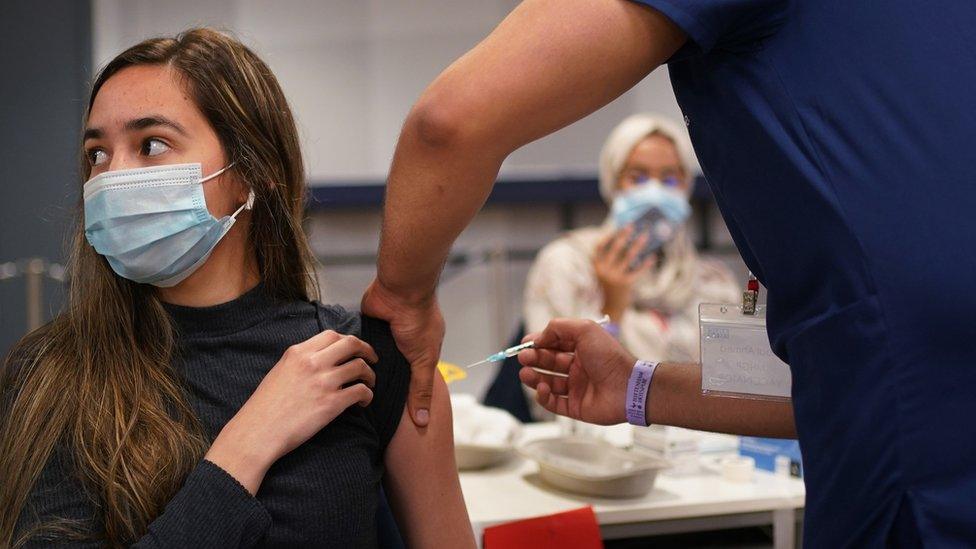
- Published25 June 2021
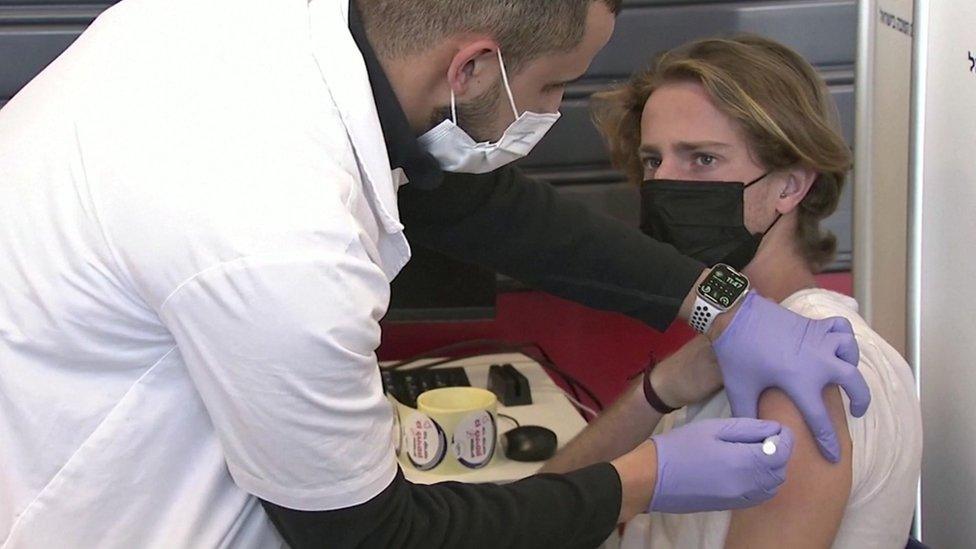
- Published16 May 2021
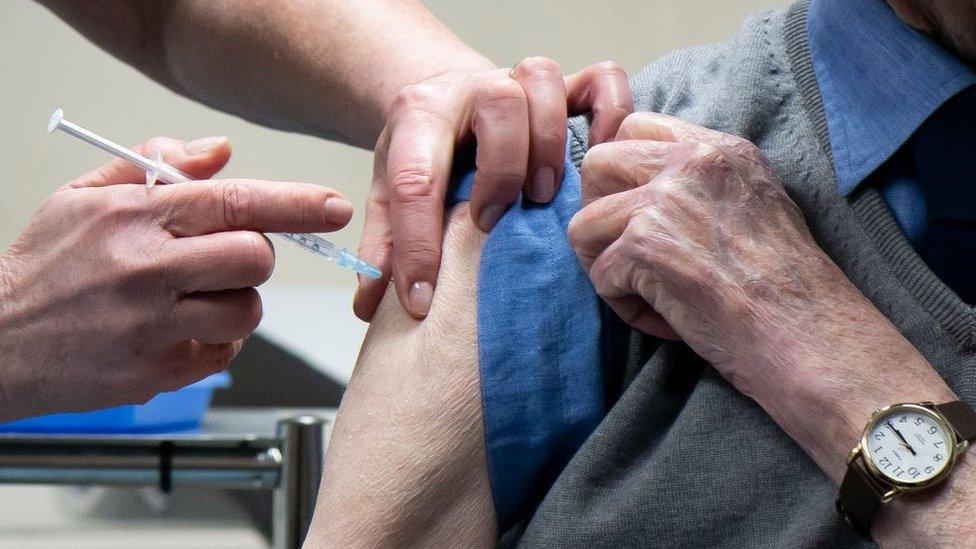
- Published23 May 2021
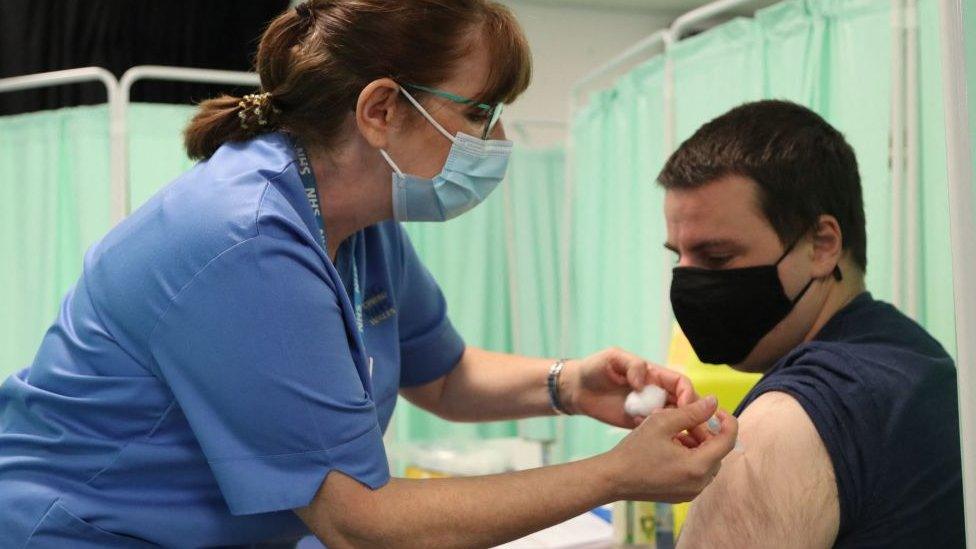
- Published27 May 2022

- Published28 May 2024

- Published27 February 2021
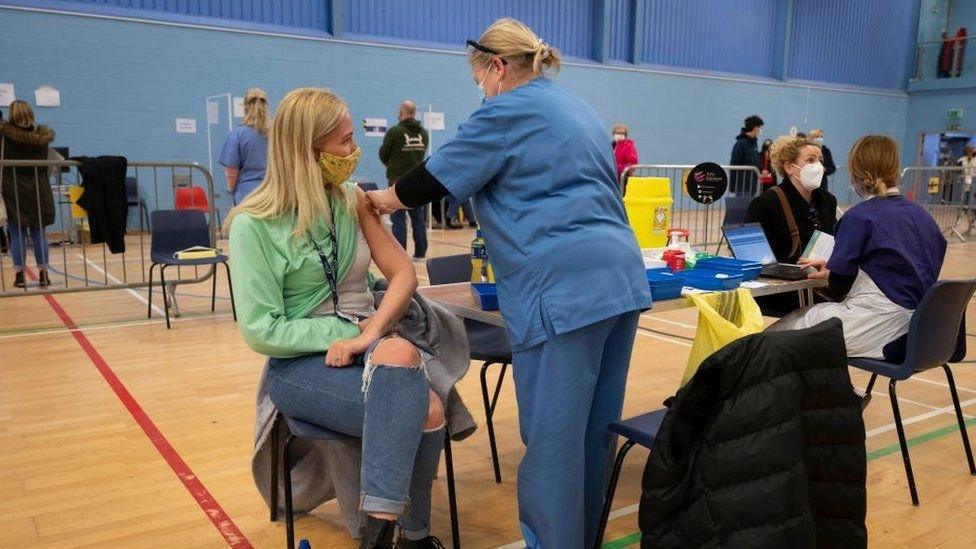
- Published6 February 2021
